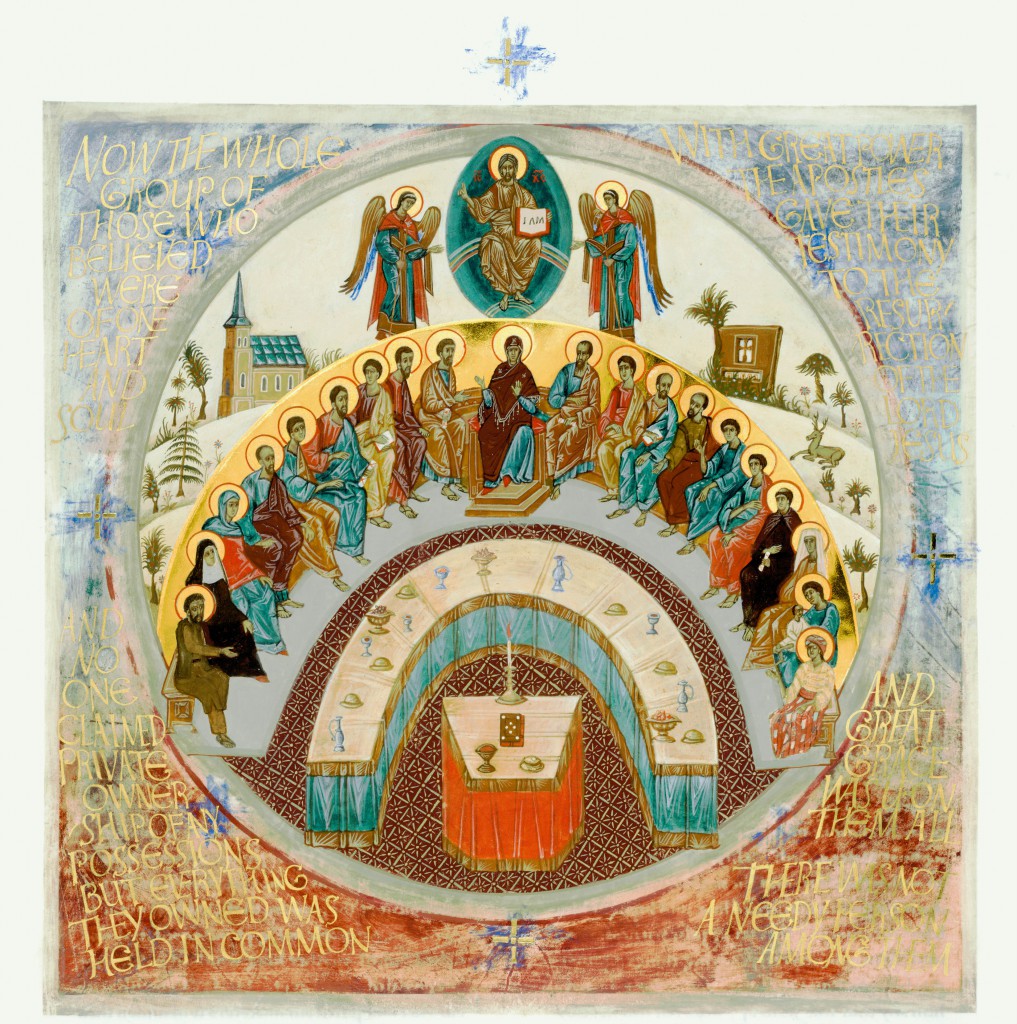
Life in Community, Aidan Hart with contributions from Donald Jackson, Copyright 2002, The Saint John’s Bible, Saint John’s University, Collegeville, Minnesota USA. Used by permission. All rights reserved.
by Cody Maynus
Ask any monk or nun to name the best and the worst parts of their religious life and you will likely get the same answer: life together in community.
Community can be difficult, regardless of the form it takes. Living together, studying together, working together, praying together takes an immense amount of work. In an age such as ours, which prides itself on individualism and uniqueness, it is often—always, even!—a real challenge to share space with another.
On the other hand, there is something absolutely holy and formative about community. When we live intentionally with other people, we privilege the needs and desires of others before our own. Not because our needs and desires are wrong or harmful or selfish, but rather because the experience of the whole is more important than the experience of the individual. Living in community allows us to step back, to take check of our lives and the lives others, and to respond with spiritual detachment. We become detached from our own agendas in order for collective wisdom—always inspired by the Spirit—to emerge. Our weaknesses are met by others’ strengths. Our gifts build up others’ weaknesses. Individually, we are small players in an awfully large and daunting game. In community, we have substance, we have gravitas, we have a body.
And Jesus had a body. In fact, Jesus’ body has been, is, and continues to be of absolute importance for Christians. Our God is the God who took on our human flesh, who was born of a woman, who was raised in a family, who engaged with others, who lived a human life, who died, and who rose again. Ours is a God who looks like us, who is re-membered, re-fleshed in every human being.
And that is the real gift of community: when we live together, study together, work together, pray together, we do so surrounded by God incarnated in the other members of our community. God makes Godself known—physically, literally—in those with whom we share our life.
This is the gift the Church gives us today: a vision for an incarnated community—a community who prays together, serves together, holds life in common together, breaks bread together. We gather tonight in our churches, monasteries, and cathedrals to begin practicing the good, hard work of living together in community. We will break bread together, pray for the world together, give to the needs of the poor together, and wash each other’s feet.
And, as a community who shares life together, we will move into the darkness of Holy Week. We will clear the altar tonight, removing the candles and cloths and contending with a naked and broken table stripped of everything comfortable, everything sacred. We will take the Eucharist from its usual place of reservation and move it—together, in procession—to a temporary place of holding, a place removed from the heart of our liturgical life.
The only way we can contend with Holy Week—the awful crucifixion, the terrible rejection, the silent abandonment—is to come together around the altar of our God who, in a few short days will smell like fiery hell and musty tomb, but who tonight smells like soap and oil and bread.
*********************************************************************************************************************************

Cody Maynus
Cody Maynus is studying monastic spirituality and history at Saint John’s School of Theology and Seminary. He is presently discerning monastic life in the Episcopal Church. He is a former Visitation Volunteer Intern.
This piece is re-printed here with permission. It runs concurrently at the Seeing the Word blog, published by St. John’s School of Theology.
0 Comments